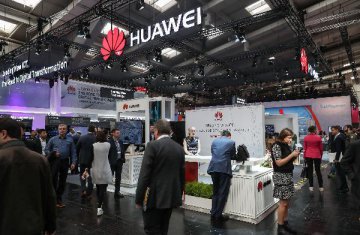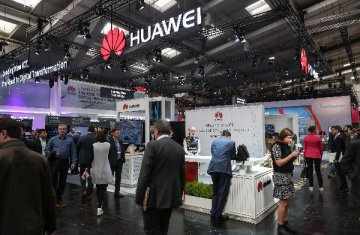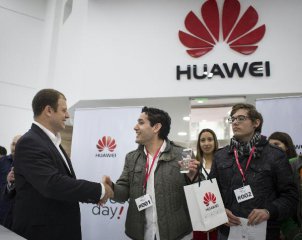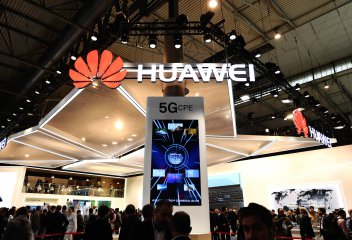The U.S. government’s temporary easing of restrictions on Huawei may bring little respite for the Chinese telecommunications giant, according to analysts.
On Monday, the U.S. government announced that it will allow Huawei to purchase American-made goods in order to maintain existing networks and provide software updates to its existing handsets, though the company is still barred from purchasing American parts and components to manufacture new products without license approvals that likely will be denied.
That development wasn’t game-changing news, experts told CNBC.
“This is not going to ... change overnight again in terms of the fortune for Huawei,” said Nicole Peng, vice president of mobility at independent analyst company Canalys.
“The biggest problem for them right now is the uncertainty,” Peng said, adding that Huawei’s suppliers are concerned about business continuity given their increasing reliance on the Chinese tech giant over the past year.
The latest development came on the back of U.S. President Donald Trump’s administration adding Huawei last week to a list that mandated a license for stateside companies if they want to do business with the Chinese company.
That led Alphabet’s Google to suspend business with Huawei that involves transferring hardware, software and other technical services. Bloomberg News also reported that companies like Intel, Qualcomm and Broadcom will not supply Huawei until further notice.
The “snowball effect” started by Google likely “forced” the Trump administration to pull back from its stance, said Anshel Sag, analyst at Moor Insights & Strategy. He added that the current situation “looks clearly political and related to the trade war.”
For its part, Huawei has stood defiant. The company’s founder, Ren Zhengfei, told Chinese state broadcaster CCTV on Tuesday that “the U.S. government’s actions at the moment underestimate our capabilities,” according to a transcript published by the outlet.
Ren said Huawei was at odds with the U.S. government, not U.S. firms, and that Huawei is capable of making the chips it buys from the United States — though that does not mean it will stop buying American chips.
“I don’t necessarily see Huawei changing course,” Sag said. “Ultimately, Huawei knows that what’s best for their business is to act as if this 90-day pause is not a pause at all.”
Google, for its part, said in a statement that the temporary pause allows the U.S. tech giant “to continue to provide software updates and security patches to existing (Huawei) models for the next 90 days.”
Who stands to gain
As Huawei’s fortunes hit a roadblock, the discussion has shifted to who may stand to benefit the most from the situation.
”(The) biggest winner in the long run will be US IT companies, but in the short term, tension between two countries raises opportunity for Korea,” Daniel Yoo, head of global strategy and research at Kiwoom Securities, told CNBC in an email.
In the smartphone segment, where Huawei was among the few companies seeing annual growth in shipments at a time of slowing sales, South Korea’s Samsung Electronics would be a beneficiary, Yoo said. Data from Canalys showed Samsung’s annual growth in worldwide smartphone shipments declining 10% in the first quarter of 2019, while Huawei surged 50.2%. In the same period, American technology giant Apple smartphone growth slid 23.2%.
Canalys’ Peng agreed, saying that Samsung has “the most overlap” in terms of product and segments with Huawei.
Sag offered a different take, saying that Huawei’s domestic competitors Vivo and Oppo could have the biggest upside from the telecommunications giant’s vulnerability.
Huawei is growing the most in Europe, he said, a region where the two Chinese brands are becoming “more aggressive” and consumers are more dependent on the Google ecosystem.
























Latest comments